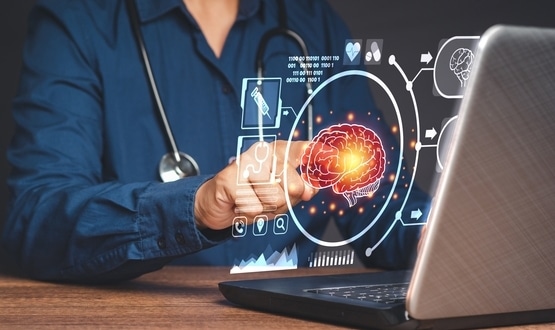NTT DATA enhances dementia research with artificial intelligence
- 9 April 2024

NTT DATA has unveiled two new solutions designed to support elderly people living with dementia that use the power of artificial intelligence.
Its first solution is the Brain Bio-Digital Twin project, an initiative that creates a digital twin of the brain. It collects and utilises data on brain-related diseases, mapping this data to construct a virtual model of the brain. The tool then uses artificial intelligence and machine learning to examine brain function through the digital twin. With this method of research NTT DATA aims to identify and prevent dementia and mental illnesses.
The project is being run jointly with the National Center for Neurology and Psychiatry (NCNP). By creating a digital version of a person’s brain, this can be studied instead of the patient. This means fewer invasive tests, cheaper and simpler testing methods, improved predictions for medication side effects and earlier disease detection and prevention.
The second solution harnesses AI to assess the cognitive ability of elderly drivers, in a bid to decrease the risk of road accidents for elderly drivers who may be suffering from cognitive issues. NTT DATA is working with Kokusai Motorcars on the project until the end of June.
To develop the AI solution, the taxi company is collecting driving data from dozens of taxis being driven by drivers aged over 65, through sensors and global positioning systems. NTT DATA will use AI to analyse the driving data to determine if drivers are experiencing a decline in cognitive brain activity which could affect their ability to make snap judgments and give their full attention to the driving task.
NTT DATA aims to launch the system as a cloud-based service in the next few years, targeting the taxi and logistics industries particularly. The company is also considering building a specific version of the solution for insurance companies.
The company is also advancing research into tackling dementia through the use of AI and deepfake technology. NTT DATA is exploring digital avatars and their use to communicate with dementia patients to stimulate them through dialogue.



